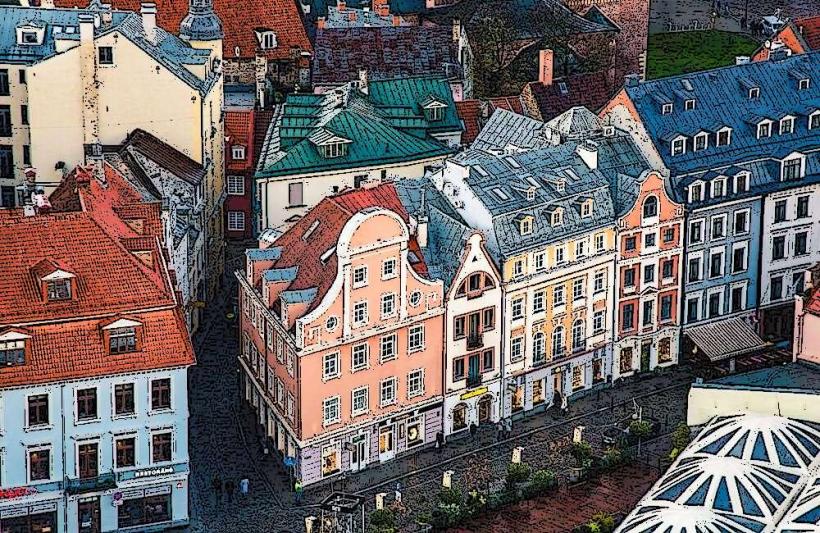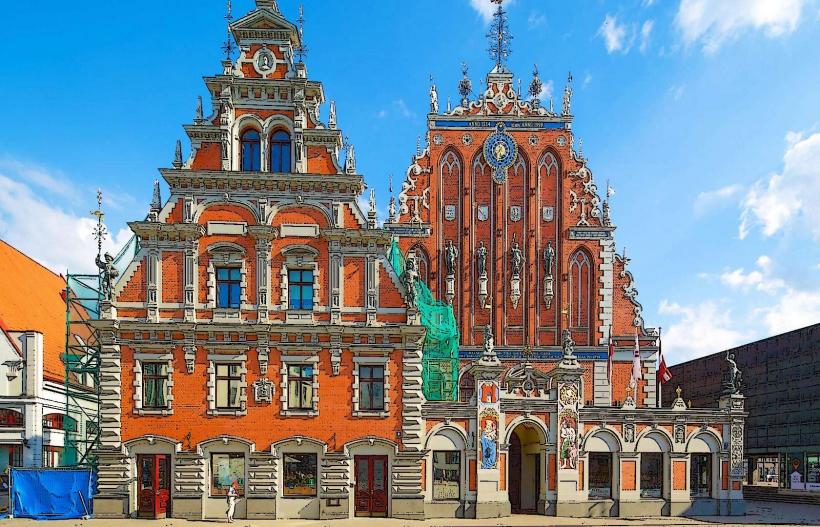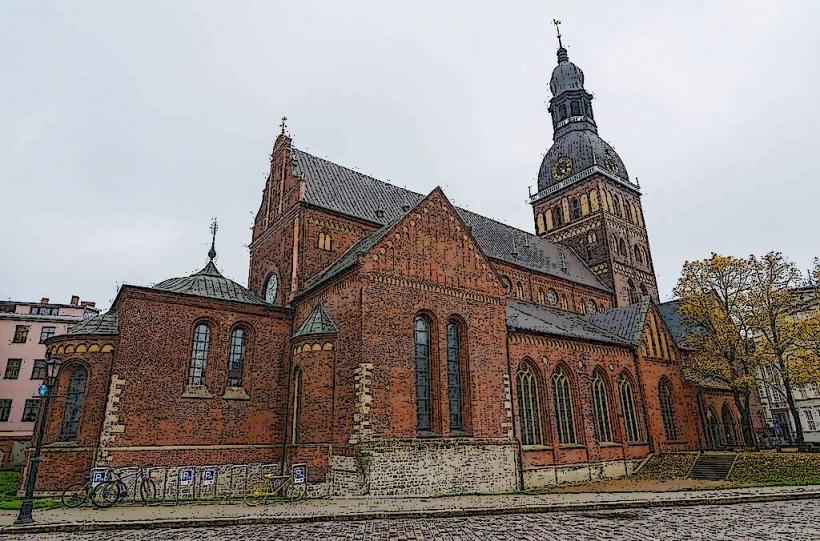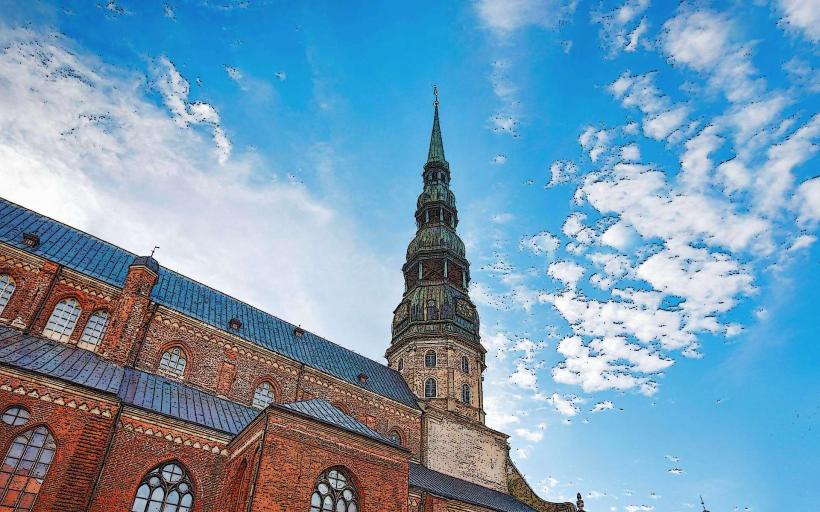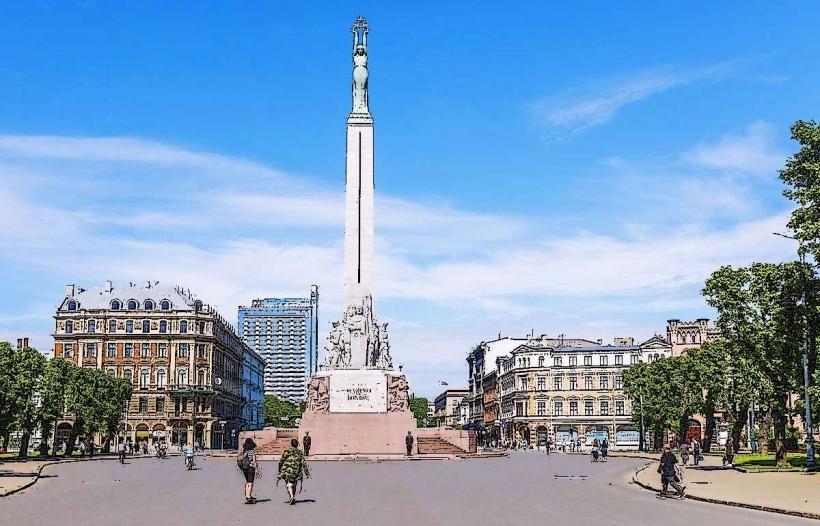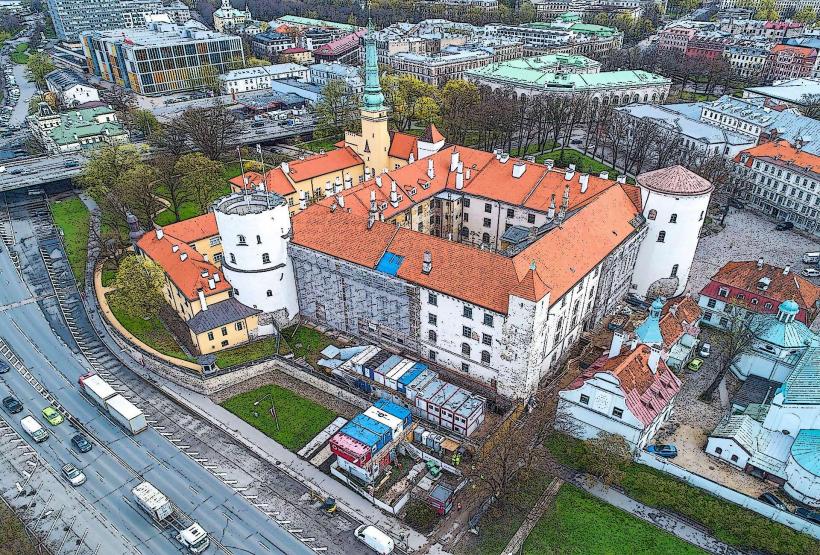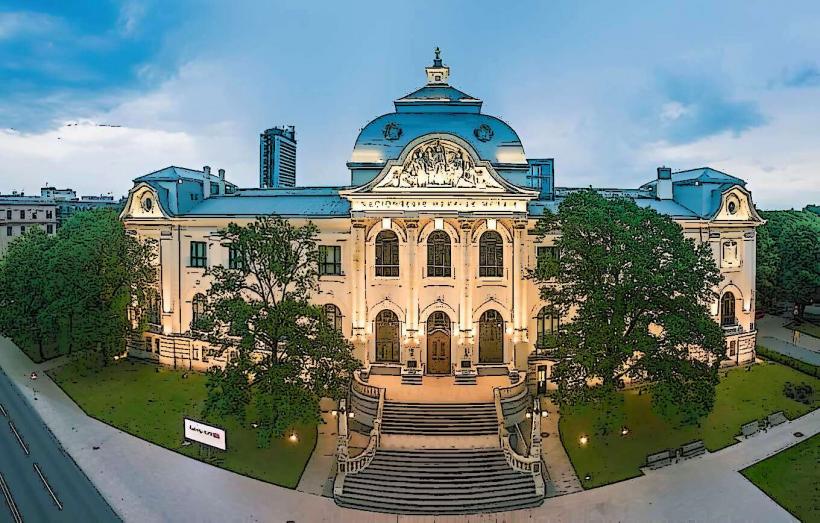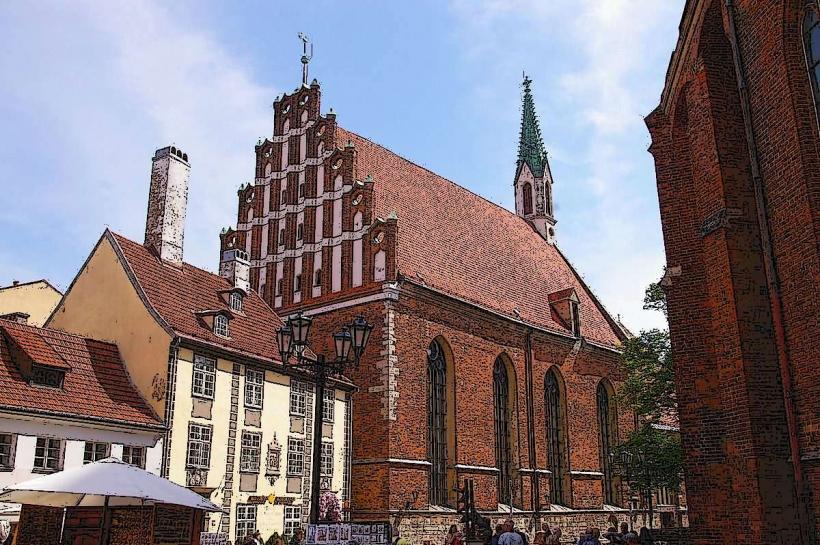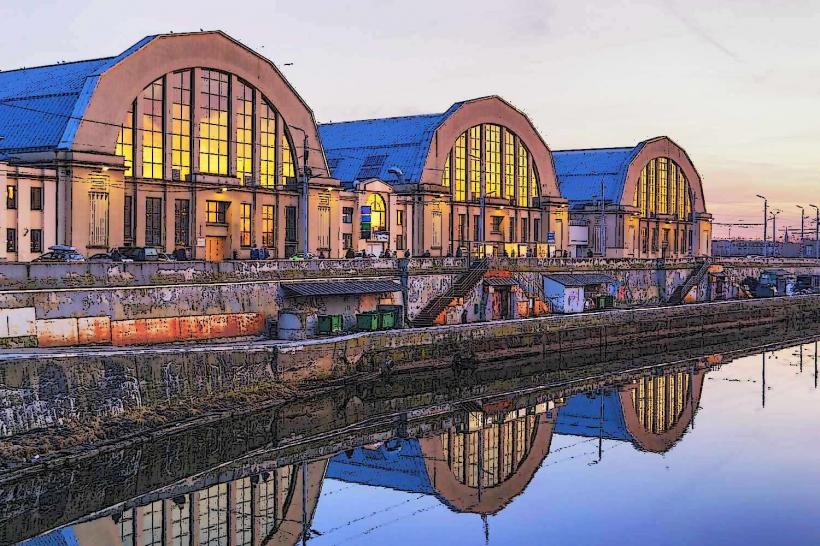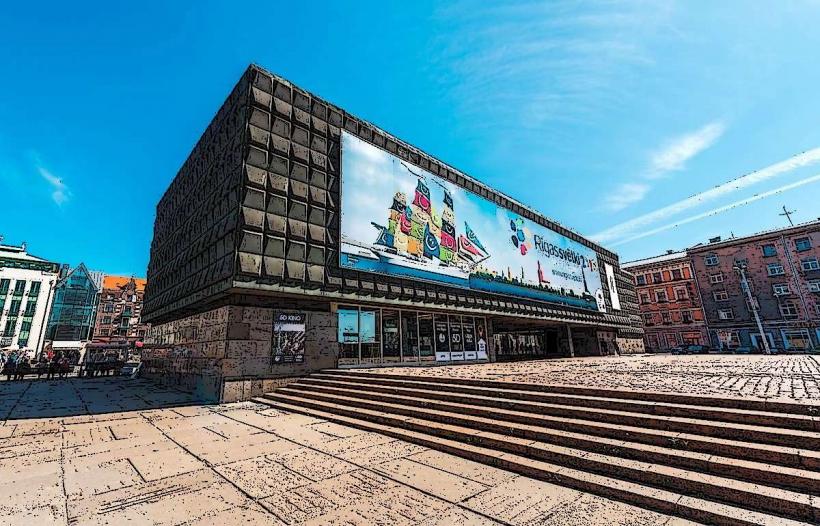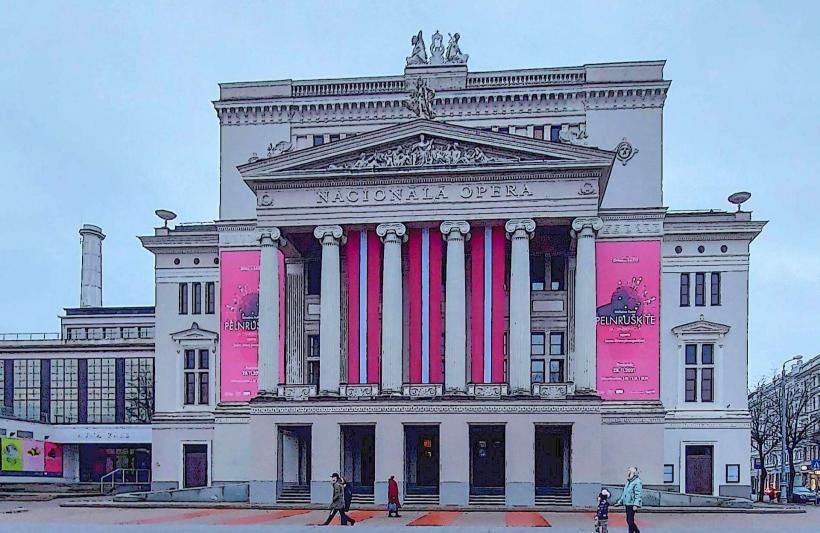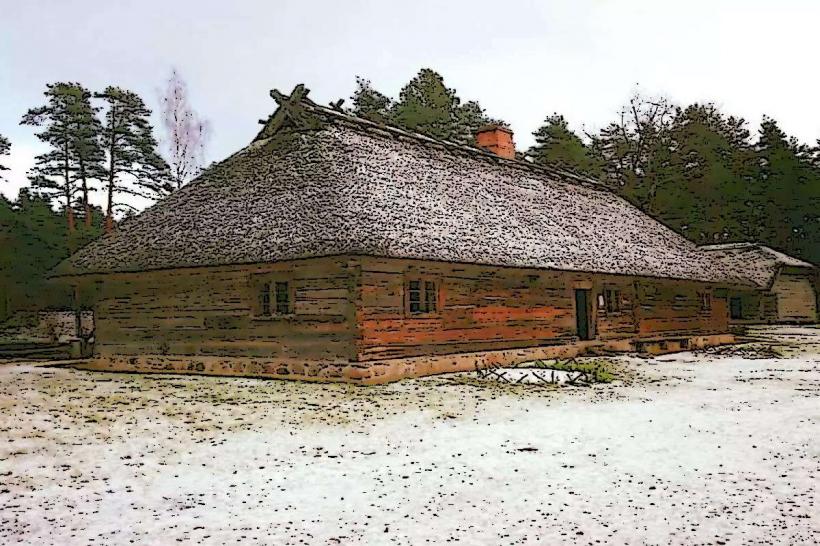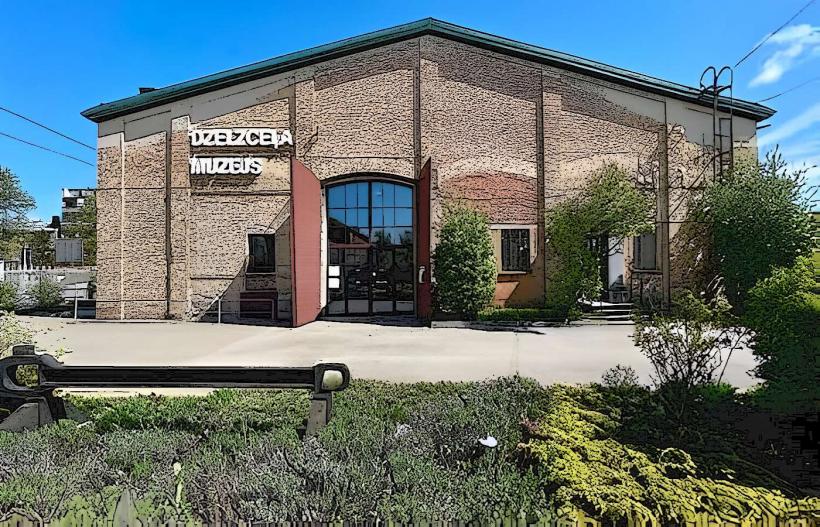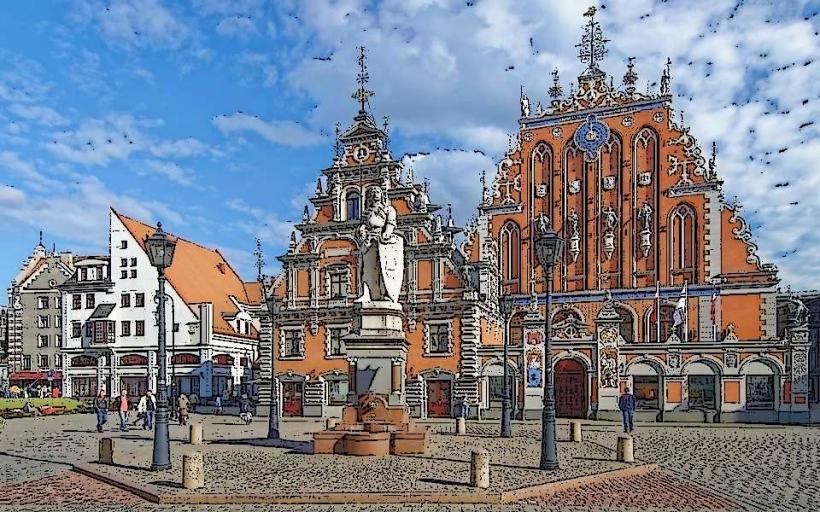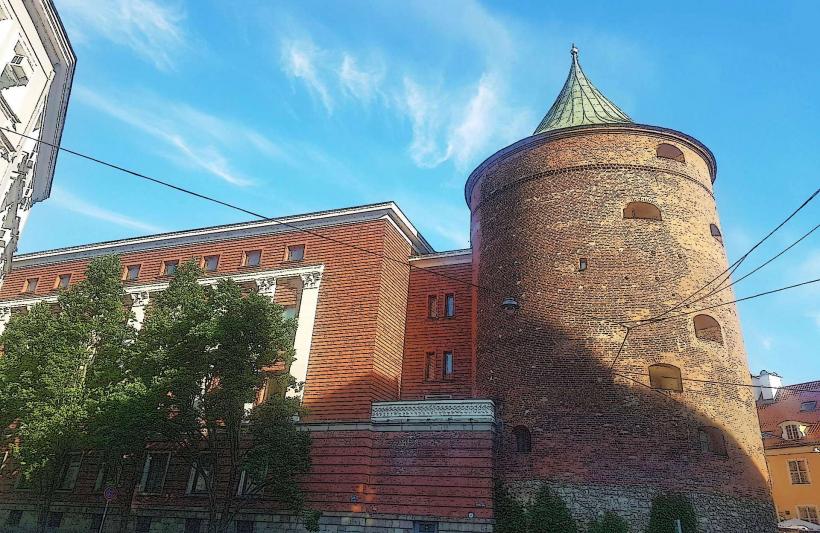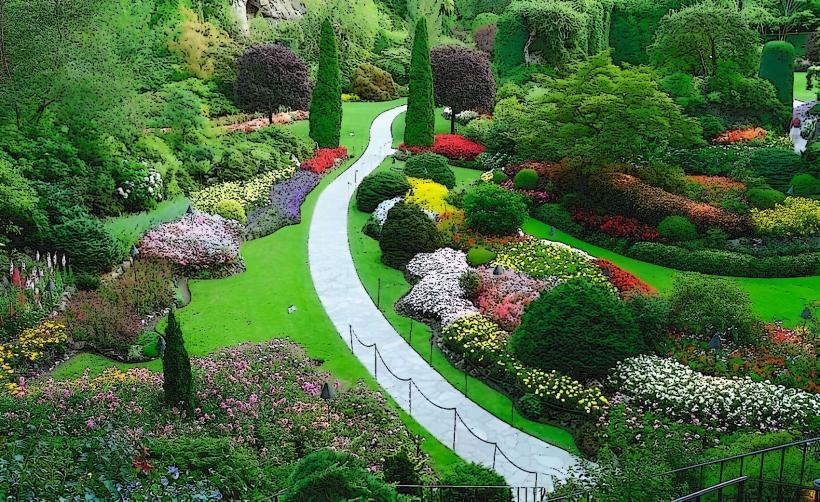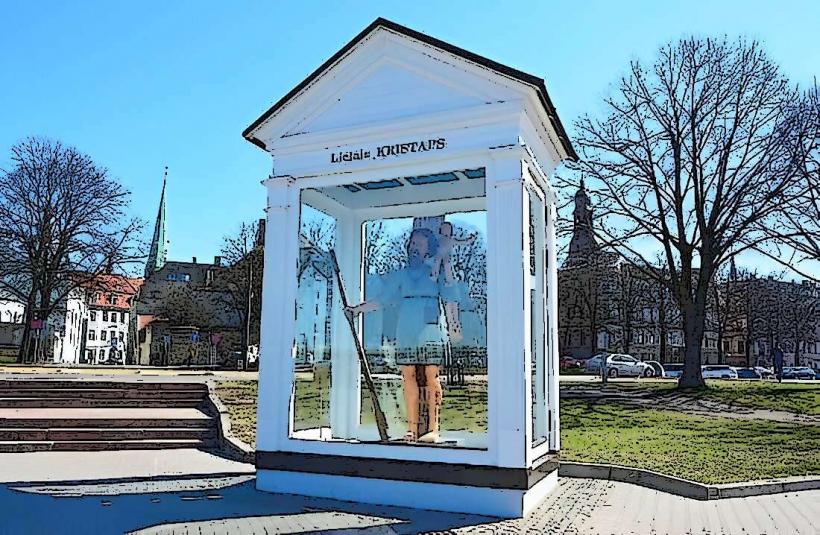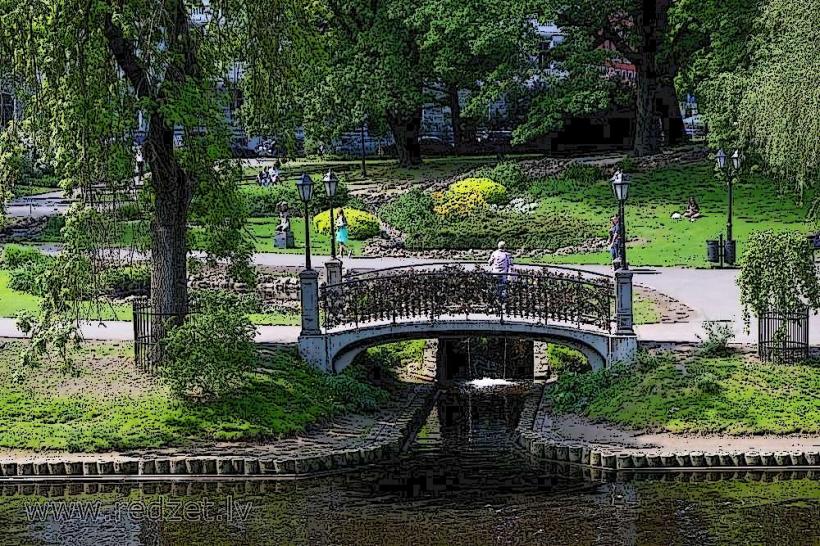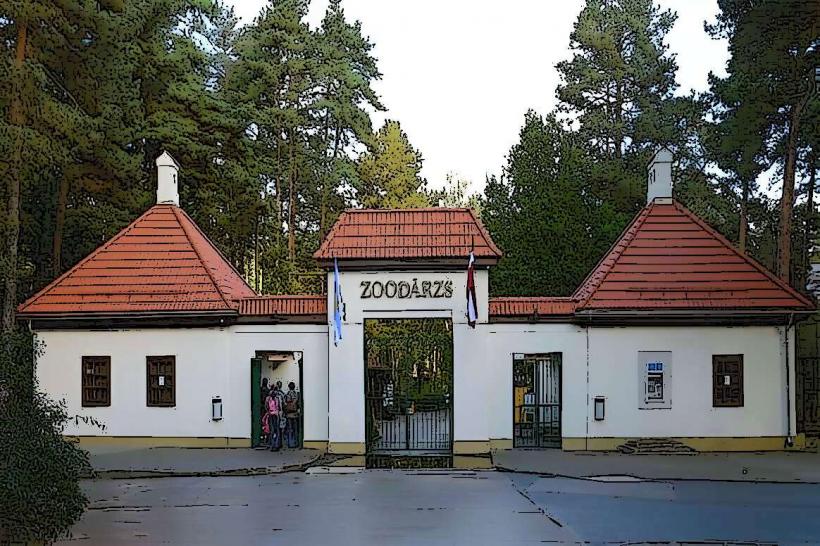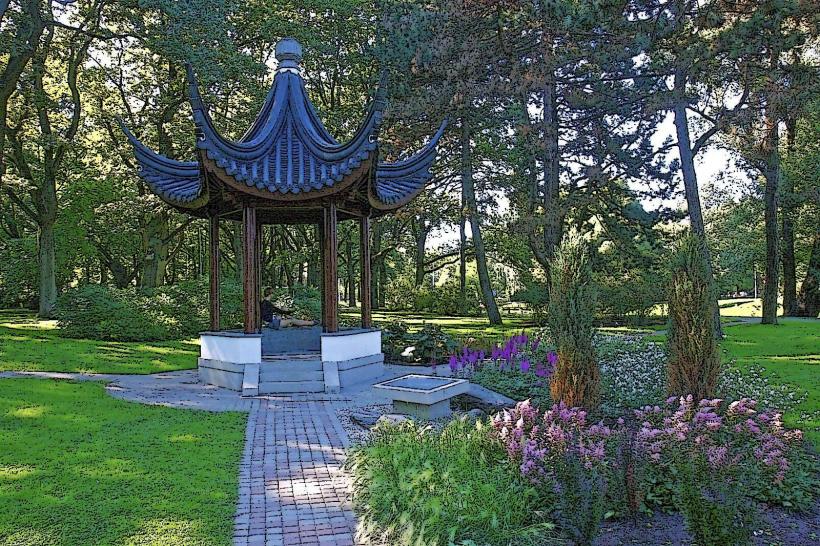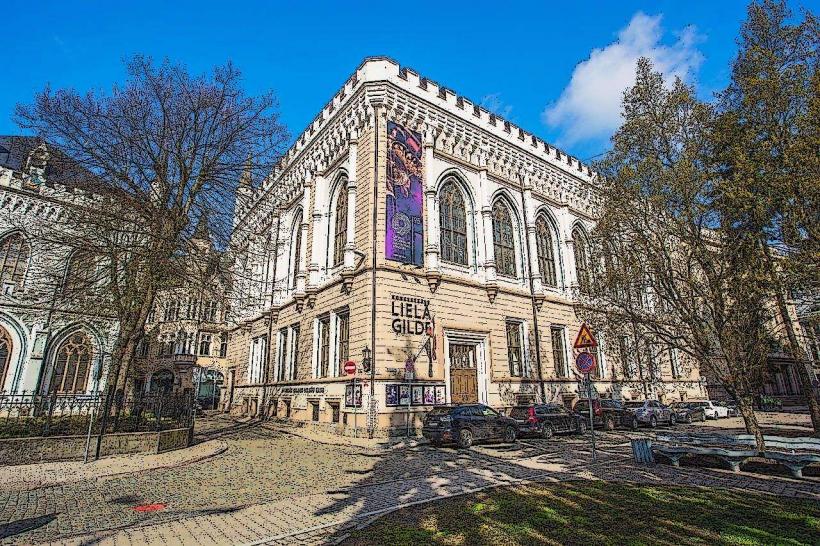Information
Landmark: Riga Film StudioCity: Riga
Country: Latvia
Continent: Europe
Riga Film Studio, Riga, Latvia, Europe
Riga Film Studio (Latvian: Rīgas Kinostudija) is a significant cultural and historical institution in Latvia, known for its role in the country's film industry. It was founded in 1948 and became one of the most prominent film studios in the Soviet Union, producing a wide range of films from documentaries to feature films during the Soviet era. Over the decades, Riga Film Studio has played a key role in the development of Latvian cinema and has been involved in both Soviet-era productions and independent films after Latvia regained its independence in 1991.
1. History and Establishment:
A. Early Years (1948-1960s):
- Riga Film Studio was established in 1948, originally as a division of the Soviet Union's film production network, and was tasked with creating films for the Soviet audience. It was one of several film studios set up in Soviet republics to promote Soviet culture and ideology.
- During its early years, the studio focused primarily on documentaries, newsreels, and educational films. It also produced feature films, although they were mostly of a propaganda nature, aligned with Soviet values.
B. The 1960s to 1980s – Soviet Era Success:
- In the 1960s and 1970s, Riga Film Studio expanded its output and gained recognition for producing high-quality films, including dramas, comedies, and historical films. It became one of the most important film production centers in the Soviet Union.
- The studio’s output was diverse, ranging from Soviet propaganda films to artistic films that dealt with historical and cultural themes. Some notable films produced during this period include "The Straw Hat" (1974), "The Grey Car" (1976), and "The Long Road" (1982).
- Filmmakers from other Soviet republics would also come to Riga to work with the studio, which was known for its technical expertise, especially in areas such as set design, cinematography, and sound recording.
C. Notable Soviet-Era Film Productions:
- Riga Film Studio produced a significant number of Soviet films, including science fiction, war films, and adaptations of literary classics. The studio was especially known for its historical films and productions based on Latvian history.
- One of the most famous films produced by the studio was "The Ballad of the White Horse" (1971), a historical epic set in medieval Latvia. It received recognition not only in the Soviet Union but also abroad.
2. Post-Soviet Transition and Challenges:
A. Impact of Independence (1991-2000s):
- After Latvia regained its independence in 1991, Riga Film Studio faced significant challenges due to the collapse of the Soviet Union’s film industry. The studio lost its central role in the Soviet film production system, and many of its resources, including funding and personnel, were significantly reduced.
- Despite these challenges, Riga Film Studio continued to be an important part of Latvia's film industry, producing both local and international films. During this period, the studio shifted towards co-productions with other countries in Europe, as Latvia's film industry sought new avenues for growth.
B. Changing Focus in the 2000s:
- In the 2000s, Riga Film Studio began focusing more on independent filmmaking and commercial productions. The studio also expanded into providing film services, such as sound recording, editing, and special effects, to other film productions.
- The studio also became a hub for film festivals and international film projects, helping to raise the profile of Latvian cinema in the global film industry.
3. Key Films and Contributions:
A. Iconic Soviet-Era Films:
- Some of the most iconic films produced at Riga Film Studio during the Soviet era include:
- "The Straw Hat" (1974): A comedy that became one of the most beloved Soviet-era films.
- "The Grey Car" (1976): A psychological drama that gained popularity both within the Soviet Union and abroad.
- "The Long Road" (1982): A film based on the theme of Latvian history and culture, which resonated with Latvian audiences.
- These films not only showcased the creative talents of the filmmakers but also helped put Riga Film Studio on the map as one of the leading film studios in the Soviet Union.
B. Post-Soviet Productions:
- Following Latvia’s independence, Riga Film Studio continued to be involved in local and international film productions. Some notable post-Soviet films include:
- "The Man Who Could Fly" (2005): A popular film about a Latvian man who defies the odds in the pursuit of a seemingly impossible dream.
- "Dreamland" (2009): A drama that explores the transformation of Latvia in the post-Soviet era.
- These films, along with others produced by the studio, helped establish Latvia as a new film-producing nation in Europe.
4. Facilities and Modern Day Operations:
A. Studio and Film Production Facilities:
- Today, Riga Film Studio operates a variety of modern film production facilities, including sound stages, post-production rooms, and editing suites. The studio continues to work on a wide range of projects, from local films to international co-productions.
- The studio also provides technical support for other filmmakers, such as set design, lighting, and costume design. It has become a key resource for film productions in the Baltic region.
B. Role in Film Education:
- Riga Film Studio also plays an important role in film education. It works in collaboration with film schools and training programs, offering opportunities for young filmmakers to gain experience in professional filmmaking.
- The studio has been involved in organizing workshops, masterclasses, and training sessions for emerging talents in the Latvian film industry.
5. Riga Film Studio Today:
A. Cultural Significance:
- Riga Film Studio remains an important cultural institution in Latvia, reflecting the country’s rich history in the arts and entertainment. It continues to be a place where both local and international filmmakers come to collaborate and create.
- The studio plays a key role in preserving the legacy of Latvian cinema while also contributing to the development of new and innovative projects. It is an important part of Riga’s film history, especially in terms of how it adapted to the changes following Latvia’s independence.
B. International Collaborations:
- Riga Film Studio is actively involved in international collaborations with filmmakers from various countries, hosting co-productions and acting as a service provider for films being made in Latvia.
- The studio has hosted several major international productions, particularly in the advertising and documentary film sectors, helping to promote Latvia’s growing reputation as a film destination.
6. Visitor Experience and Legacy:
A. Tours and Exhibitions:
- Although Riga Film Studio is primarily a working studio, it sometimes offers guided tours and exhibitions about the history of Latvian cinema and the studio’s role in it. These tours give visitors insight into the filmmaking process and the historical significance of the studio.
- Visitors may have the opportunity to see sets, props, and costumes from notable films produced at the studio.
B. Film Festivals:
- Riga Film Studio is also involved in hosting and organizing events such as film festivals and screenings that celebrate Latvian and international cinema. These events provide a platform for filmmakers to showcase their work and promote the studio’s legacy.
7. Conclusion:
Riga Film Studio has played a vital role in the development of Latvian cinema, both during the Soviet era and after Latvia's independence. From its early years of producing documentaries and propaganda films to its current role as a hub for independent films and international co-productions, the studio continues to be a key player in the region’s film industry. It remains a symbol of Latvian creativity and cultural heritage while adapting to the changing demands of the global film industry.

